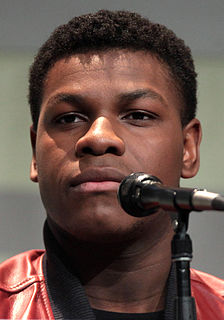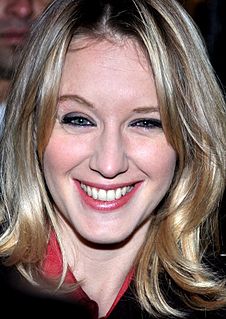A Quote by Yann Martel
Reality is how we interpret it. Imagination and volition play a part in that interpretation. Which means that all reality is to some extent a fiction.
Related Quotes
Fiction is not imagination. It is what anticipates imagination by giving it the form of reality. This is quite opposite to our own natural tendency which is to anticipate reality by imagining it, or to flee from it by idealizing it. That is why we [Europeans] shall never inhabit true fiction; we are condemned to the imaginary and nostalgia for the future.
Reality became for me a problem after my experience with LSD. Before, I had believed there was only one reality, the reality of everyday life. Just one true reality and the rest was imagination and was not real. But under the influence of LSD, I entered into realities which were as real and even more real than the one of everyday. And I thought about the nature of reality and I got some deeper insights.
All interpretation or observation of reality is necessarily fiction. In this case, the problem is that man is a moral animal abandoned in an amoral universe and condemned to a finite existence with no other purpose than to perpetuate the natural cycle of the species. It is impossible to survive in a prolonged state of reality, at least for a human being. We spend a good part of our lives dreaming, especially when we're awake.
This fact was something I also learned from this first novel that I needed personal experience to invent, to fantasize, to create fiction, but at the same time I needed some distance, some perspective on this experience in order to feel free enough to manipulate it and to transform it into fiction. If the experience is very close, I feel inhibited. I have never been able to write fiction about something that has happened to me recently. If the closeness of the real reality, of living reality, is to have a persuasive effect on my imagination, I need a distance, a distance in time and in space.
I had lines inside me, a string of guiding lights. I had language. Fiction and poetry are doses, medicines. What they heal is the rupture reality makes on the imagination. I had been damaged, and a very important part of me had been destroyed - that was my reality, the facts of my life. But on the other side of the facts was who I could be, how I could feel. And as long as I had words for that, images for that, stories for that, then I wasn't lost.
As an actress, I think I really understand that stage where you think you are picking reality in order to feed the fiction, but it happens to be the contrary. It's the fiction that suddenly feeds your reality. And you don't know how it has been done. That's the kind of magical transposition that is art.
Literary science fiction is a very, very narrow band of the publishing business. I love science fiction in more of a pop-culture sense. And by the way, the line between science fiction and reality has blurred a lot in my life doing deep ocean expeditions and working on actual space projects and so on. So I tend to be more fascinated by the reality of the science-fiction world in which we live.
To reach only for that which pleasantly enchants you is the least of imagination, if even imagination at all, by the obvious reality of remaining within your means. The greater of imagination is parallel to risk. It extends beyond your comfort zone or haven, or sense of beauty, or what you personally believe suits you in exploration of what may not.

































